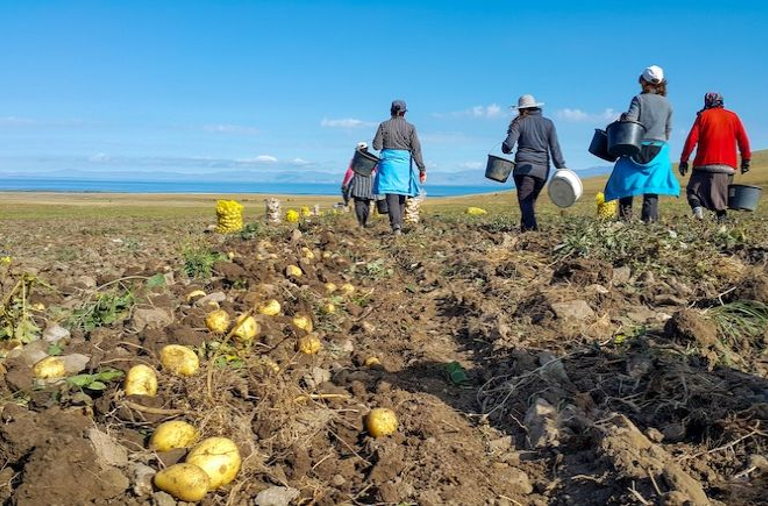Last night at midnight, a “shelter in place” order went into effect here in Northern California, directing people to stay home except to get groceries or medical care.
This dramatic social distancing measure is an effort to catch up with the fast-spreading coronavirus that’s now upending so many lives. Anxiety is high as schools, restaurants, bars and “nonessential businesses” close their doors, and those who can are working from home.
We’re able to do this at PAN, and we realize just how lucky we are. While many of our usual gatherings and events have been postponed or cancelled, we can shift to operating remotely while also staying connected to our work, and to each other. But we’re acutely aware that many of the people we partner with most closely — farmworkers, small farmers and rural families — don’t have this option.
Unequal impacts
As we adjust to new realities each day, this crisis is shining a bright, hot light on just how fragile and inequitable so many systems in this country are — the food system being just one example of many.
Across the food chain, workers are paid indecently low wages, and many don’t have (or can’t easily use) sick leave. Farmworkers here in California report that they’ve received little or no information about how to protect themselves or their communities as coronavirus spreads.
Migrant workers who normally follow planting and harvest seasons are now being turned away from their usual seasonal jobs due to the outbreak. Meanwhile, farmworker communities continue to be targeted by this administration’s out-of-control Immigration and Customs Enforcement (ICE) officers. We encourage you to support this petition organized by the United We Dream coalition, calling for access to coronavirus testing and health care for all, regardless of immigration status.
Small farmers across the country face particular challenges as well, from lack of rural health care to disrupted distribution chains. This includes the growing uncertainty over the fate of farmers’ markets — an important source of both income and community for many — as public health officials limit the size of gatherings. The national Farmers Market Coalition is calling for markets to remain open through the crisis, as they are critical to “the livelihoods of tens of thousands of farmers and food access for millions of consumers.”
Toward resilience
I was thrilled to hear that our friends at Urban Tilth, an urban farm that provides fresh vegetables to their community in Richmond, was designated an “essential business” that could remain in operation during the Bay Area’s lockdown. Yes, Urban Tilth and so many farms that are deeply rooted in their communities are completely essential, at this time of crisis and always.
It’s also inspiring to see our partners at United Farm Workers pressing growers to take immediate steps to inform and protect their workers in the face of the virus outbreak – a commitment that again, should always be in place.
As our friends at the National Family Farm Coalition (NFFC) remind us, this pandemic will impact farmers, rural communities and people who rely on food assistance in ways that are “only beginning to emerge.” And while we maintain our social distance, it’s more important than ever to stay connected in these anxious times — and to keep working toward a more resilient future. Here’s NFFC again:
Without ignoring the real pain and loss many are suffering, we also must lift up the need to raise, grow, and catch our food in ways that are closer to our communities and enriching to all.
Hear, hear. Perhaps this crisis will remind us all to recognize the importance of being in community with each other, and the urgency of building a more resilient food system for all.





